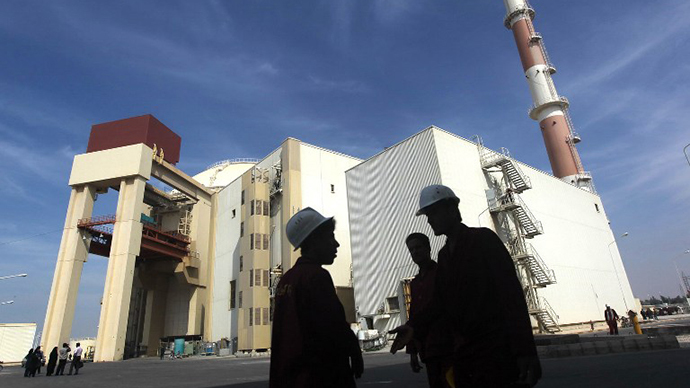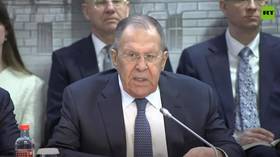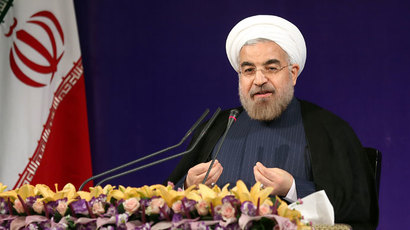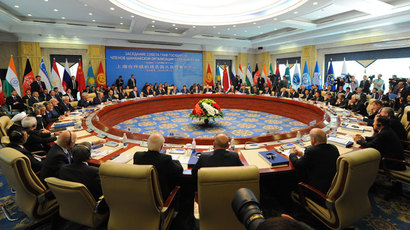Tehran, Moscow agree to build new nuclear power plant - Iran’s nuclear chief

Tehran and Moscow will cooperate on the future construction of a new nuclear power plant, according to Iranian nuclear chief Ali Akbar Salehi. The news comes as Russia hands over operational control of the first unit of the Bushehr nuclear plant to Iran.
“The operation of the Bushehr nuclear power plant from this
day has been passed to Iranian specialists and will come under
full control of the Iranian side after a two-year warranty
period or seven thousand hours of work,” said the head of the
Atomic Energy Organization of Iran (AEOI), Ali Akbar Salehi, as
quoted by IRNA news agency.
"The Iranian people have been waiting for the commissioning of
the Bushehr nuclear power plant for 37 years," he added.
Salehi noted that Russian experts would remain at the facility
throughout the two-year warranty period.
"Should any problem arise the Russian contractor is
responsible for removing it," he said.
Moscow has also agreed to provide the facility with fuel for 10
years. The supply deal commits Tehran to returning the spent
fuel.
Salehi said that in the near future, Tehran is expecting the
construction of a second unit of the Bushehr nuclear power plant.
“During the last meeting of the intergovernmental commission
on economic issues of Iran and Russia both parties reached an
agreement on the construction of new nuclear power plants,”
he said.
He acknowledged that the two countries are continuing
negotiations on the issue of building new facilities and said
“construction work is to start soon.”

Tehran is open to nuclear energy collaboration, said Iranian
President Hassan Rouhani in a statement dedicated to the event.
He added that the country is open to a constructive dialogue with
any party interested in such cooperation. The president urged all
countries to promote the peaceful use of nuclear energy.
“As in the past, the Islamic Republic of Iran will be a
pioneer in achieving this magnificent goal,” he said.
The 1,000-megawatt plant in Bushehr is located approximately
1,200 kilometers south of the capital.
The construction of the first civilian nuclear power plant in
Iran and the entire Middle East region was started in Bushehr in
1975 by Kraftwerk Union AG – a subsidiary of the German company
Siemens.
But following the 1979 Islamic revolution, the US imposed
economic sanctions on Iran, with Germany joining them. The
construction work was stopped and the contract terminated.
In 1992, the governments of Russia and Iran struck a deal on the
construction of the nuclear plant, which was followed the signing
of a contract in 1995 on the completion of the first power unit
of the Bushehr facility. However, due to technical problems, the
plant began to generate energy only in 2011. In June 2013, the
first unit was launched at 100 percent capacity.
The Bushehr nuclear power plant has no link to nuclear weapons
production and cannot be used to develop such technology. The
facility has never been and is not subjected to international
sanctions, as the construction was carried out under the
supervision of the International Atomic Energy Agency (IAEA).
Nevertheless, some Western countries - mainly the United States
and Israel - believe that Iran’s nuclear ambitions are aimed at
developing weapons, and suggest imposing new sanctions on the
Islamic Republic in addition to existing restrictions on the
economy. The countries want the new sanctions to target
investments in oil, gas and petrochemicals, and exports of
refined petroleum products, among other things.
Iran and the P5+1 group – the US, UK, Russia, China, France, and
Germany - have held several rounds of talks on Tehran’s nuclear
energy program, but have not yet come to an agreement.
Iran says its nuclear program is targeted at developing energy
and medicine, and that the country has the right to use nuclear
technology for peaceful purposes.














